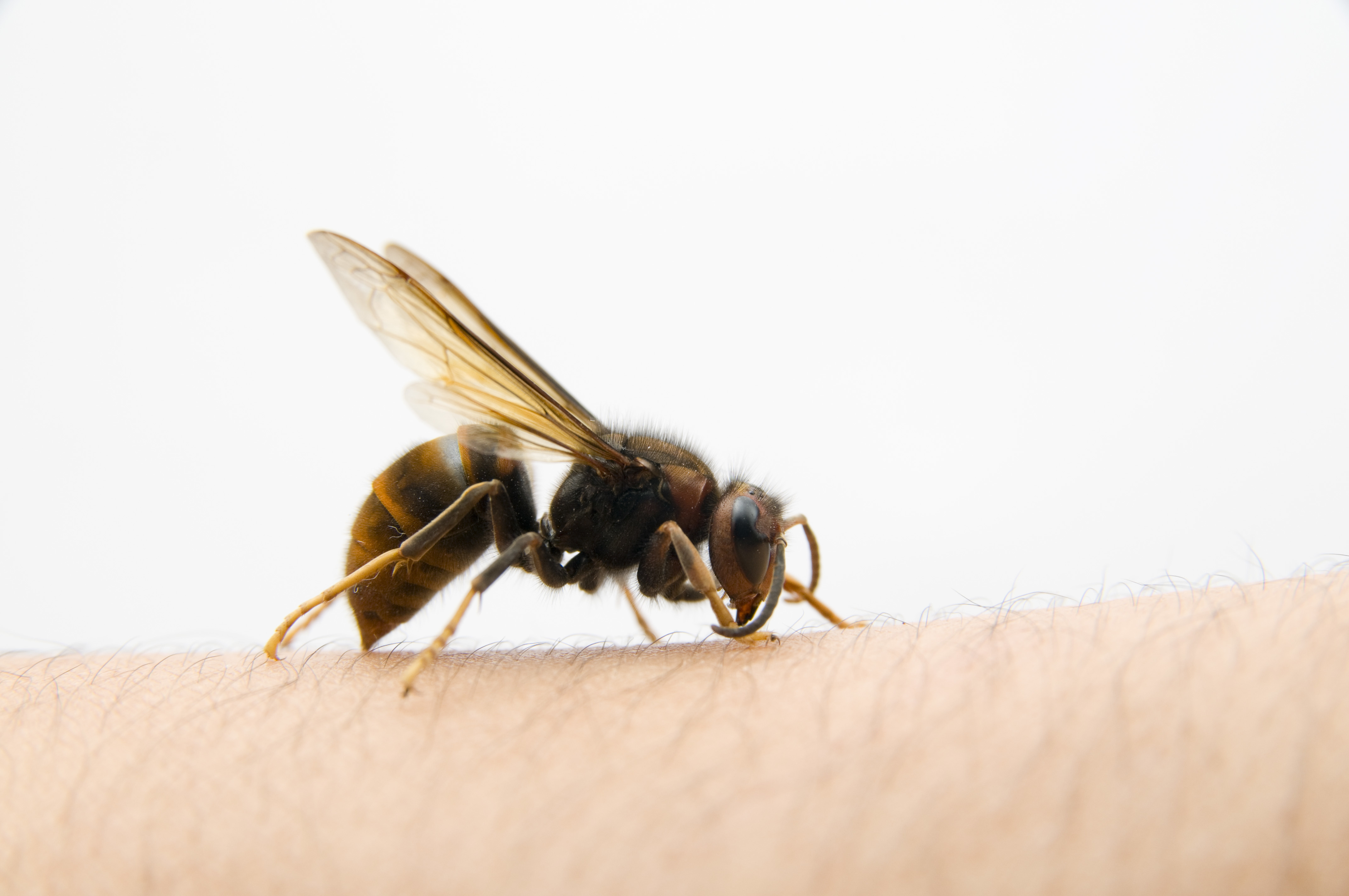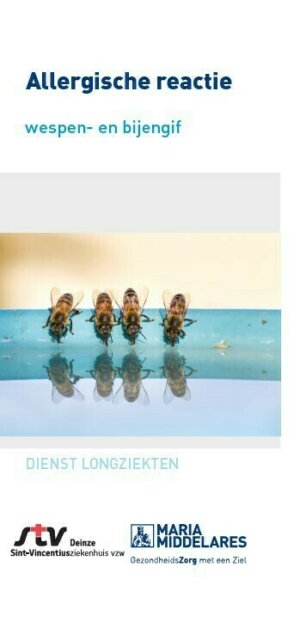Allergy to wasps and bee venom
Symptoms and causes
Symptoms and causesWhat is it?
An allergy is an unjustified reaction of our immune system to foreign substances entering through the skin (latex, insect poisons, cosmetics, etcetera), the respiratory system (pollen, house dust mites, animal dander, etcetera) or the digestive system (fish, crustaceans, milk, medication, etcetera). Approximately 30% of the population is allergic.

An allergic reaction to wasp and bee venom can:
- be a local reaction.
- be a toxic reaction dependent on the number of stings
- be an allergic reaction produced by a
single sting
Local reactions are the most common. Physician intervention is rarely necessary in these cases. A toxic reaction and an allergic reaction are medical emergencies for which admission to the hospital is often required. We call this a severe anaphylactic reaction.
What is anaphylaxis?
Anaphylaxis is a severe generalised allergic reaction that is produced a few minutes after having had contact with a
responsible allergen. It can be life-threatening. There is often a combination of symptoms of a classic allergic reaction. The symptoms are more serious and are usually accompanied by low blood pressure.
Symptoms of an anaphylactic reaction:
- swelling
- hives
- wheezing
- shortness of breath
- drop in blood pressure
- shock
- dizziness
- heart palpitations
Diagnosis and treatment
Diagnosis and treatmentWhat should you do in the case of allergic reaction after a wasp or bee sting?
- Treat it immediately.
- Use an auto-injector with adrenaline (e.g. Epipen ®)
- Call 112.
How to keep from being stung?
- Do not make any waving/abrupt movements if you see a wasp close by. Walk away calmly.
- Be extra careful in areas around garbage bins, fruit trees and picnic tables.
- Do not wear brightly coloured or black clothing: insects are attracted to these colours.
- Avoid strong-smelling deodorant or perfumes.
- Wasps may also be attracted to the smell of perspiration.
- Never walk barefoot in the grass.
- Wear clothes that cover your body as much as possible whilst gardening (long sleeves, long trousers, gloves).
Leaflet
LeafletMore info on an allergy to wasp and bee venom and instructions for using the adrenaline pen can be found in the leaflet below.
Only available in Dutch:

Allergische reactie: wespen- en bijengif
DownloadTreatment centres and specialisations
Treatment centres and specialisations
Latest publication date: 14/05/2024
Supervising author: Dr Lamont Jan



